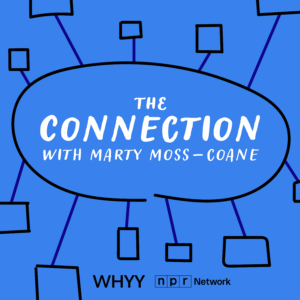Shedding Light on Depression and Stigma
Will Senator John Fetterman's openness about his depression help remove some of the stigma around mental illness?
Listen 50:14
FILE - Sen. John Fetterman, D-Pa., walks to a motorcade vehicle after stepping off Air Force One behind President Joe Biden, Feb. 3, 2023, at Philadelphia International Airport in Philadelphia. On Thursday, Feb. 16, Fetterman's office announced that the senator had checked himself into the hospital for clinical depression.(AP Photo/Patrick Semansky, File)
Pennsylvania Senator John Fetterman checked himself into a hospital last week for treatment for depression. Many people praised his openness and courage to voluntarily seek inpatient treatment. Fetterman’s experience is not unique. A third of recovering stroke victims – and more than 8% of all Americans—will struggle with depression. Many more of us have experienced depressive symptoms or have watched a loved one battle the disease.
But so much stigma still surrounds mental illness, including depression, with its symptoms often hidden and misunderstood. Barriers to mental health care access like provider shortages, affordability, and cultural competency continue to prevent more than half of people from getting the help they need.
Today, we’ll discuss how our understanding of depression has evolved and look at the root causes of the disease and the stigma that persists. We’ll also talk about how families can help a loved one who is battling mental illness – and how those families also need support.
Guests
Nii Addy, Albert E. Kent Associate Professor of Psychiatry and Director of Scientist Diversity and Inclusion at Yale School of Medicine. Host of the Addy Hour podcast.
Ashley Clayton, Mental Health Advocate and Research Associate at the Family Violence Research Program at Yale School of Medicine
Andrew Nierenberg, Director of the Dauten Family Center for Bipolar Treatment Innovation, Massachusetts General Hospital and Professor of Psychiatry, Harvard Medical School
Resources
National Suicide and Crisis Lifeline
988
National Suicide Prevention Lifeline (Options for Deaf and Hard of Hearing)
For TTY Users: Use your preferred relay service or dial 711 then 988
National Alliance for Mental Illness : call or text the NAMI Helpline at 800-950-6264,
Depression and Bipolar Support Alliance: (800) 826-3632
Substance Abuse and Mental Health Services Administration National Helpline
(800) 662-4357
Veterans Crisis Line
988, then PRESS 1
Text 838255
Philadelphia crisis line: 215-685-6440
Montgomery County Mobile Crisis Support: 1-855-634-HOPE (4673)
Delaware County Crisis Connections Team: 1-855-889-7827
New Jersey Hope Line: 855-654-6735
WHYY is your source for fact-based, in-depth journalism and information. As a nonprofit organization, we rely on financial support from readers like you. Please give today.






